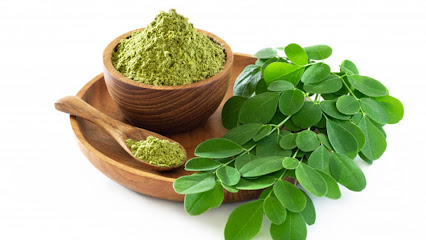Moringa, often referred to as the "miracle tree," has gained popularity for its impressive nutritional profile and potential health benefits. This plant, scientifically known as Moringa oleifera, is native to parts of Africa and Asia and has been used for centuries in traditional medicine. In recent years, it has attracted global attention due to its nutritional richness and therapeutic properties. This article delves into the benefits, nutritional content, and risks of moringa.
Nutritional Profile of Moringa
Moringa is packed with a variety of essential nutrients, making it a potent supplement for overall health. Here's a look at its key components:
Vitamins: Moringa is rich in vitamins A, C, and E, which are essential for maintaining skin health, boosting the immune system, and protecting against oxidative stress.
Minerals: It contains important minerals such as calcium, magnesium, potassium, and iron. These minerals support bone health, muscle function, and energy levels.
Protein: Moringa leaves are a source of high-quality plant-based protein, containing all nine essential amino acids, making it especially valuable for vegetarians and vegans.
Antioxidants: The plant is a powerhouse of antioxidants, including quercetin and chlorogenic acid. These compounds help neutralize free radicals in the body, reducing inflammation and lowering the risk of chronic diseases.
Fiber: The high fiber content in moringa aids digestion and supports gut health, promoting regular bowel movements and reducing constipation.
Health Benefits of Moringa
Rich in Antioxidants Moringa's antioxidants, such as vitamin C and beta-carotene, fight oxidative stress in the body. Quercetin and chlorogenic acid have been shown to lower blood pressure and regulate blood sugar levels, reducing the risk of heart disease and diabetes.
Anti-Inflammatory Properties Chronic inflammation is linked to many serious health conditions, including cancer, arthritis, and cardiovascular diseases. Moringa contains isothiocyanates, compounds that have anti-inflammatory effects, which may help reduce inflammation in the body.
Supports Brain Health Moringa's high vitamin E and C content help fight oxidative stress that can affect brain function. It may improve cognitive performance and lower the risk of neurodegenerative diseases, such as Alzheimer’s and dementia.
Balances Blood Sugar Levels Some studies suggest that moringa may help lower blood sugar levels, making it a beneficial supplement for people with diabetes or those at risk of developing it. The chlorogenic acid in moringa supports insulin production and glucose absorption.
Supports Heart Health Moringa has been linked to reduced cholesterol levels, which may contribute to a healthier heart. High levels of cholesterol are a risk factor for heart disease, and moringa's ability to lower LDL (bad cholesterol) levels could be beneficial.
Boosts Immune System Due to its rich supply of vitamin C and other essential nutrients, moringa is an excellent booster for the immune system. It helps strengthen the body’s defense against infections, especially during seasonal changes.
Promotes Skin Health Moringa's anti-inflammatory and antioxidant properties are beneficial for skin health. It can help reduce acne, fine lines, and wrinkles, while also promoting a healthy, glowing complexion.
Potential Risks and Side Effects
While moringa offers numerous health benefits, it's important to consider potential risks, particularly for certain groups of people.
Digestive Issues For some individuals, consuming moringa in large amounts can lead to gastrointestinal disturbances, including diarrhea, nausea, or bloating. It is best to start with small doses and gradually increase intake.
Pregnancy Concerns Pregnant women should consult with their healthcare provider before consuming moringa, especially the roots and bark, as these parts of the plant may have compounds that can cause uterine contractions or complications during pregnancy.
Hypoglycemia Moringa may lower blood sugar levels, so individuals with diabetes or those on medication to lower blood sugar should monitor their levels closely and seek medical advice before incorporating moringa into their routine.
Drug Interactions Moringa could potentially interact with medications for conditions like diabetes, hypertension, or thyroid issues. It's crucial to talk to a healthcare professional before consuming moringa if you're on medication for these conditions.
How to Incorporate Moringa into Your Diet
Moringa is available in various forms, including powders, capsules, and teas. Here are some ways to enjoy its benefits:
- Smoothies: Add moringa powder to smoothies for a nutritional boost.
- Teas: Brew moringa leaves for a refreshing tea with antioxidant properties.
- Salads: Use fresh moringa leaves as a nutritious addition to salads.
- Soups: Stir moringa powder into soups and broths for extra vitamins and minerals.
Conclusion
Moringa is an impressive plant with a wide range of potential health benefits, from improving immune function to reducing inflammation and balancing blood sugar levels. However, like any supplement, it's important to consume it responsibly, especially if you have underlying health conditions or are pregnant. Always consult with a healthcare provider before making significant changes to your diet. When used wisely, moringa can be a powerful ally in achieving better health and well-being.









.png)


.png)




.png)

